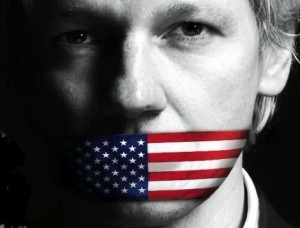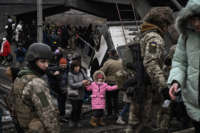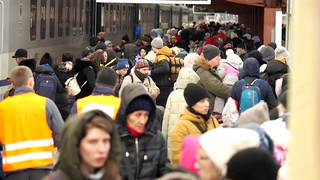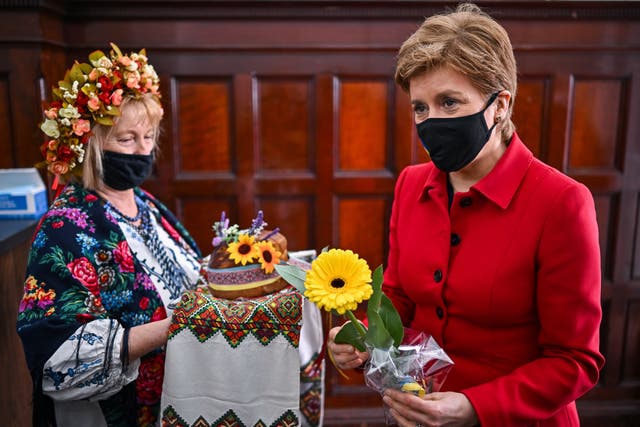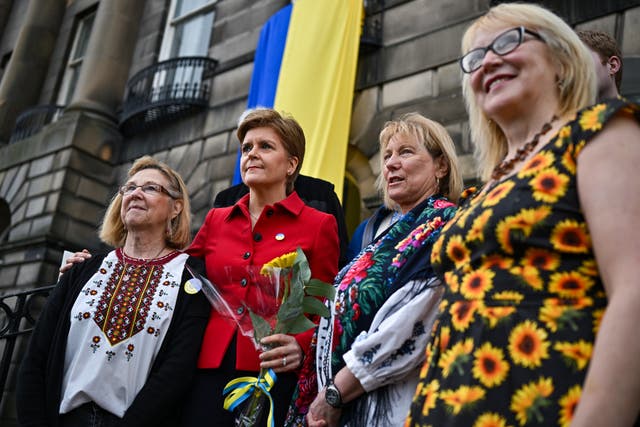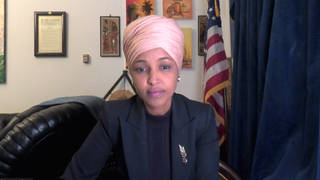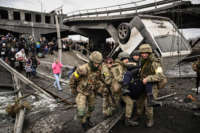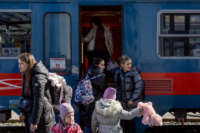Overview
For over seven decades, Palestinian refugees in Lebanon have suffered from inhuman conditions in overcrowded camps rife with poverty, unemployment, and lack of access to education. This commentary argues that despite these conditions, which are continuously deteriorating along with the economic and political collapse in Lebanon, Palestinian refugees in Lebanon have repeatedly demanded their social, political, and economic rights by collective action and mass mobilization.
The most recent mass mobilization in the Palestinian camps against discriminatory Lebanese policies took place in the summer of 2019. This commentary will examine the 2019 Palestinian Hirak al-Mukhayyamat, or the Movement of the Camps, and the different ways Palestinians made their voices heard. Indeed, in addition to the Hirak, Palestinians joined the revolutionary Lebanese street in the autumn uprising of that same year, effectively defying the institutionalized discrimination that has contained them in sequestered and destitute refugee camps.
Despite the continuous violations of their rights by the Lebanese government, the complicity of UNRWA and their funders in these violations, and most importantly, the neglect of what remains of Palestinian leadership in the diaspora and in Palestine, Palestinians in Lebanon have sought justice time and again. Through their activism, they have achieved visibility in Lebanon, and have challenged policies and regulations that maintain their stateless status in destitute camps.
Excluding Palestinians from Refugee Rights
According to UNRWA, more than 479,000 Palestinian refugees are registered with the agency in Lebanon. About 45% of them live in the country’s 12 refugee camps. However, this number is not necessarily accurate. According to the Population and Housing Census in Palestinian Camps and Gatherings in Lebanon (PHHCCG), led by the Lebanese-Palestinian Dialogue Committee (LPDC), in partnership with the Central Administration of Statistics (CAS) and the Palestinian Central Bureau of Statistics (PCBS), there were only 174,422 Palestinian refugees in Lebanon in 2017.
The discrepancy in numbers is due to multiple social, economic and political factors. While UNRWA’s statistics may be inflated to obtain funding, the PHHCCG numbers may be deflated to absorb the increasing anti-refugee sentiment in the country, and to show that Palestinians do not constitute an economic or demographic threat to the Lebanese public. While exact figures may be unascertainable, Palestinian refugees are consistently isolated in international refugee registers.
The Hirak highlighted the ability of Palestinians in Lebanon to reinvent themselves and produce new, young, and diverse leadership
Click To Tweet
In 2020, UNHCR reported 82.4 million forcibly displaced people worldwide. Palestinian refugees, registered under the mandate of UNRWA in Palestine and the diaspora, constitute 5.7 million of them. As Graph 1 below indicates, Palestinian refugees are reported independently from the global numbers. This is due to their separate legal status, confirmed with an exclusion clause in Article 1(D) of the 1951 UN Convention, which states that the convention does not apply to persons already being assisted by other UN agencies. As Palestinian refugees receive services from both UNRWA and the UN Conciliation Commission for Palestine, they are thus excluded from UNHCR’s mandate. This exclusion is supported by Arab states, under the pretext of preventing Palestinians’ tawteen, or resettlement and naturalization, in their different host countries, which they claim would harm refugees’ right of return to Palestine. This has left Palestinian refugees stateless and deprived of the rights granted to those who fall under the UNHCR mandate, namely the right to resettlement.
As a result, Palestinians in Lebanon face persistent discrimination and isolation, and are deprived from ownership of property and the right to work in a number of professions. They also experience recurring violence and attacks from inside and outside the camps. The ghettoized communities in which they live are, in many cases, surrounded by walls and Lebanese army checkpoints, rendering them vulnerable to Lebanese army attacks, such as the case of Nahr el-Bared in 2007. Moreover, Palestinian factions regularly engage in armed clashes within the camps, which last for days and lead to casualties and significant disruption to daily life.
Life-threatening disasters also occur in the camps, such as the mysterious explosion that took place in Burj al-Shamali camp in December 2021. This and other explosions often go unnoticed and unreported, either because they occur in areas inaccessible to Lebanese security forces, or because they are considered internal affairs that should be dealt with by the Palestinian factions. Hence, Palestinian casualties are often uncounted, and extensive infrastructural and property damages go unreported. The perpetrators of these crimes are likewise rarely held accountable.
Hirak al-Mukhayyamat: When the Camps Speak
On June 3, 2019, Lebanese Labor Minister Camille Abu Suleiman introduced a campaign titled “Only Your Countrymen Can Help You Stimulate Your Business.” The campaign, which claimed to be part of an effort to regulate foreign workers, granted businesses and other institutions a one-month period to “correct” employee rosters and register undocumented non-Lebanese workers. On July 10, a nationwide crackdown started in which many foreign-owned businesses, particularly Syrian and Palestinian, were forcibly shut down; and in cases where undocumented or unregistered workers were found, businesses were forced to pay substantial fines. Some Palestinians working in NGOs reported that they had to take mandatory time off work, and even hide in bathrooms during inspection visits from the Ministry of Labor and municipal staff to avoid losing their jobs or causing disruption to their institutions and colleagues.
Abu Suleiman’s campaign was a reflection of increasing anti-refugee sentiment across the country, exacerbated by the influx of Syrian refugees in recent years. Nonetheless, Palestinians in Lebanon’s refugee camps continue to agitate to claim justice and dignity. While Abu Suleiman, the Lebanese government, and Palestinian leadership believed this crackdown would pass as had many previous waves of violations against refugees, a significant response emerged from within the camps. On July 15, Palestinians across the camps called for mass demonstrations and a joint Lebanese-Palestinian march towards parliament the following day. However, Lebanese and Palestinian officials stopped the march based on the long-standing PLO policy that Palestinians will not interfere in the affairs of host countries. This further benefited Palestinian factions aiming to suppress the emergence of new leadership from within the camps, particularly among youth unaffiliated with, and often against, the factions.
Contrary to the demands of Palestinians in Lebanon, Palestinian factions’ representatives conducted a number of meetings with the Lebanese government to “contain” the situation. These meetings failed, however, as representatives of the factions boycotted the last negotiations meant to take place on July 29. Mass demonstrations subsequently took place inside the large camps of Rashidieh and Ein el-Hilweh in southern Lebanon, and in Nahr el-Bared in the north.
These camps are surrounded by Lebanese neighborhoods, and as part of the demonstrations, Palestinians in Ein el-Hilweh announced they would boycott Lebanese markets during the Eid al-Adha celebrations, opting to only trade inside the camp. Organizers used various methods to promote the boycott, including writing messages on Lebanese Lira notes calling for the boycott and explaining its justification. The movement proved effective, as Lebanese merchants impacted by the boycott began calling on their government to exclude Palestinians from Abu Suleiman’s discriminatory decision. On July 31, demonstrations in Sidon included both Palestinians and Lebanese calling for the rights of Palestinian refugees. Chanting anti-discrimination slogans, this collective mobilization demonstrated the significant impact of Palestinians on the Lebanese market.
Change in the dire situation of Palestinian refugees (in Lebanon) will not be a result of policymakers’ decisions, but in spite of them
Click To Tweet
In their call, Palestinians demanded all civil rights just short of full naturalization through citizenship. Their narrative focused on dignity, and the majority of the slogans were variations on the same theme: “We want to live in dignity until we return.” The Hirak highlighted the ability of Palestinians in Lebanon to reinvent themselves and produce new, young, and diverse leadership – a fact that threatens the power of the old Palestinian regime. Indeed, Palestinian leadership sought to sabotage the Hirak by either disrupting demonstrations or threatening those who participated.
Palestinians continued to organize mass demonstrations and various actions, such as hunger strikes, until late September 2019. Multiple factors led to its dissolution, including the deteriorating political, economic, and security situation in Lebanon throughout the summer of 2019, the subsequent start of the Lebanese revolution in October, as well as Abu Suleiman’s repeated claims that the campaign does not apply to Palestinian refugees. Still, no official announcement has been made that the crackdown on the right to work for Palestinian refugees will end.
Through their activism, however short and contained within the camps, Palestinians created a space for themselves to stake claims to their own rights — as well as the rights of other refugees and migrants in Lebanon — to equality within the context of the October 17 revolutionaries’ demands. Indeed, the Lebanese revolutionaries even used symbols and songs from the Palestinian struggle. Many donned the Palestinian kufiyyeh and blared the sounds of Palestinian revolutionary songs in spaces where Palestinians previously would have previously been excluded. In many narratives, the October revolution was called an Intifada.
The Hirak spotlighted the reality that, despite over seven decades of governmental efforts to isolate Palestinian refugees from Lebanese society, Palestinians remain an integral part of the country’s social, economic, cultural, and political fabric – a part that cannot be ignored or trapped behind the walls and checkpoints surrounding the camps. This will remain the case until their right of return to Palestine is fulfilled.
Breaking the Cycle of Oppressive Policies
On December 8, 2021, the Lebanese Minister of Labor, Mustafa Bayram, announced a ministerial decision that would potentially allow Palestinians born in Lebanon and registered with the Ministry of Interior to work in professions previously only open to Lebanese nationals. These professions are regulated by trade unions and syndicates from which Palestinians have historically been barred. While the decision was arguably a positive step towards the fulfilment of the rights of Palestinian refugees to work in Lebanon, and towards eradicating discrimination in the labor market, it was condemned by Lebanese politicians who claimed that it opens the door for tawteen and, consequently, will increase unemployment among Lebanese nationals.
A month after announcing the decision, Bayram stated that it would not impact the labor law or any laws and regulations of labor syndicates. Hence, the decision should ultimately be considered, at best, as a gesture of goodwill rather than an actual change of Lebanese state policy. It is also arguable that the decision was circumstantial; with the rapid deterioration of the situation in Lebanon, many Lebanese who are able to leave the country have done so, creating a massive brain drain and major gaps in the market that necessitated extending employment to non-Lebanese. In February 2022, the Maronite League contested Bayram’s decision and submitted an appeal to the Shura Council to cancel it on the basis that Bayram exceeded the limits of his authority. The Shura Council approved the appeal and suspended the implementation of the decision, thus maintaining the status of discrimination and violations against Palestinians in Lebanon, and prohibiting them from their right to work.
Palestinians’ rights as refugees within Lebanon are thus continually exploited for political ends, depending on the economic and political conditions in the country. This extends to both Palestinian and Lebanese politicians, as well as to different UN agencies and donor countries that benefit from the status quo. In this context, refugee rights are partially extended to Palestinians by the Lebanese government as a privilege, rather than as an inalienable right — a privilege that can be taken away when the balance of interests and powers change.
In spite of this exploitation, Palestinians have for decades staked claims to and defended their own rights by mass mobilization, whether against cuts to UNRWA’s funding and services, or ongoing violations by the Lebanese government and Palestinian factions. The 2019 Hirak was the most recent iteration of Palestinian refugees in Lebanon demanding these rights. Their actions must be seen as a product of heightened awareness among Palestinian youth that their leadership, as well as international refugee agencies and their donors, are complicit in their continued dispossession.
As a result, this generation of Palestinians is poised to create its own form of leadership, taking to the streets in revolutionary spirit, demanding rights and dignity, and effecting change in policies that directly impact them. While the change is often nominal or temporary, ultimately, these movements break the narratives of Palestinian refugees’ victimhood and dependency — narratives that underpin the so-called “relief efforts” of the UN, the Lebanese government, and the Palestinian factional leadership in Lebanon and Palestine that only further entrench the status quo. In this way, change in the dire situation of Palestinian refugees will not be a result of policymakers’ decisions, but in spite of them.
The post The Mobilizing Power of Palestinians in Lebanon appeared first on Al-Shabaka.
This post was originally published on Al-Shabaka.
